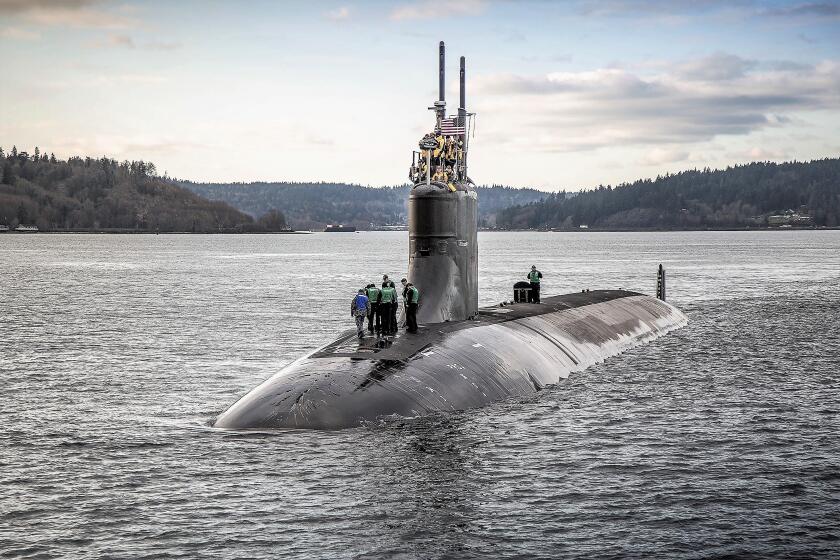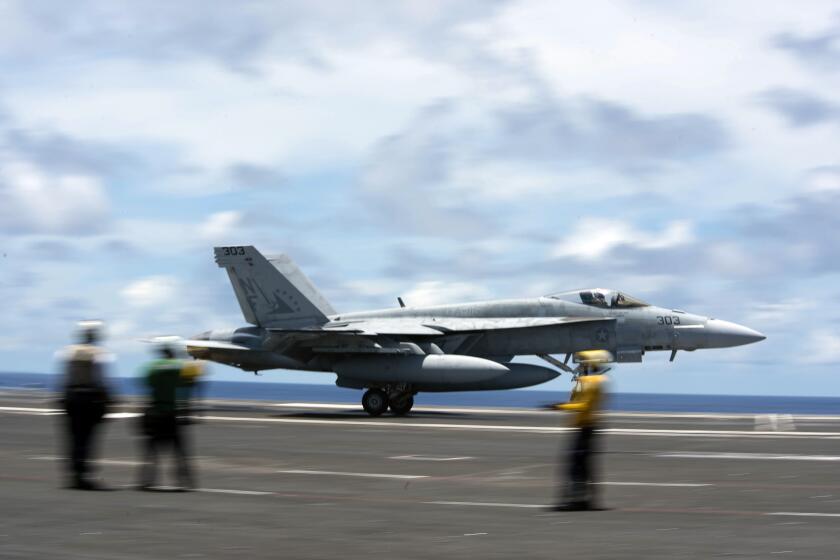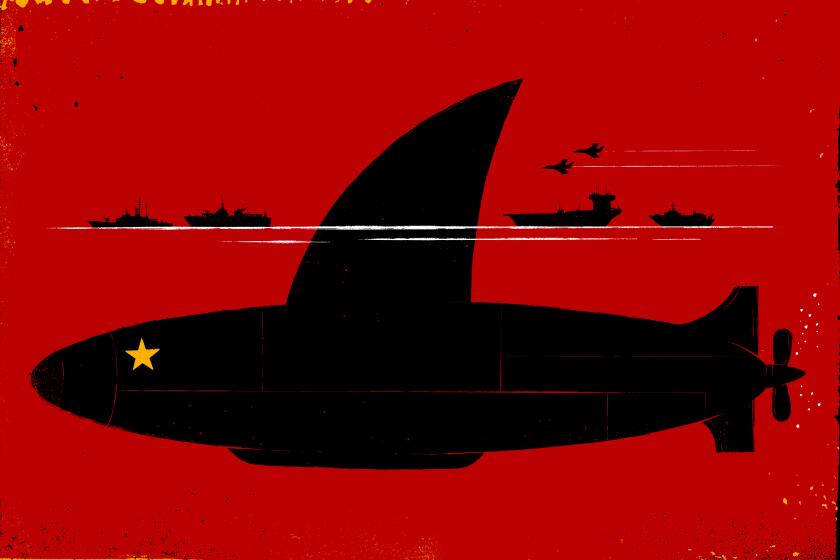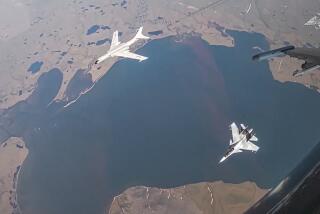China builds mock-ups of U.S. warships, possibly to practice for future naval clash
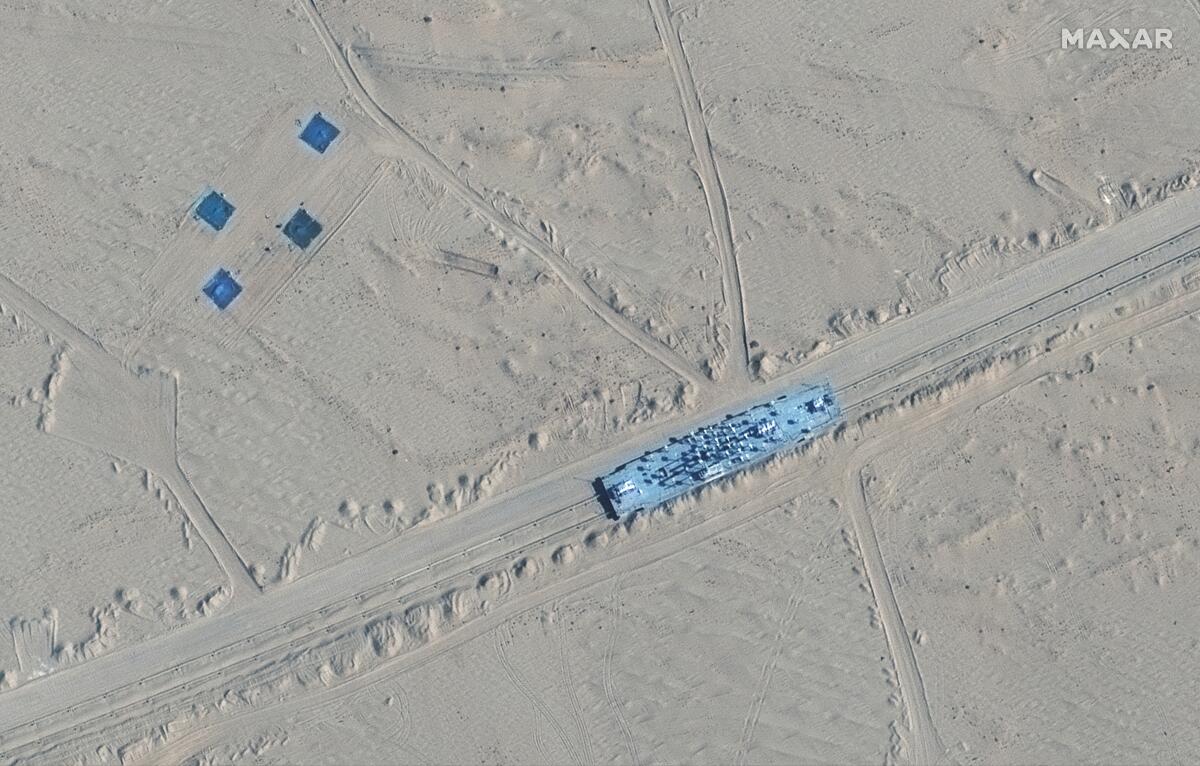
BEIJING — Satellite images show that China has built mock-ups of a U.S. Navy aircraft carrier and destroyer in its northwestern desert, possibly for practice for a future naval clash between the two great powers.
China has massively upgraded its military in recent years, and its capability and intentions are of increasing concern to the United States as tensions rise over the South China Sea, Taiwan and military supremacy in the Indo-Pacific.
The images captured by Colorado-based satellite imagery company Maxar Technologies, dated Sunday, show the outlines of a mock U.S. aircraft carrier and at least one destroyer sitting on a railway track.
Maxar identified the location as Ruoqiang, a county in the Taklamakan Desert, in the northwestern Xinjiang region.
The independent U.S. Naval Institute said on its website that the mock-ups of U.S. ships were part of a new target range developed by the People’s Liberation Army.
It wasn’t clear from the images how much detail had been included in the apparent targets, although the U.S. Naval Institute said it had identified features on the destroyer including funnels and weapons systems.
China has accused the U.S. of a ‘lack of transparency’ regarding an accident last month involving an American submarine in the South China Sea.
Chinese Foreign Ministry spokesperson Wang Wenbin said at a news briefing Monday that he had no information about the images. “I’m not aware of the situation you mentioned,” he said.
China’s military strategy has emphasized countering the U.S. and other countries’ naval forces.
That includes the development of land-, sea- and air-launched missiles to repel and possibly sink opposing vessels, expressed most emphatically by the land-based DF-21D ballistic missile, known as the “carrier killer.”
Recent months have also seen a substantial increase in Chinese military flights just southwest of Taiwan, the self-governing island republic that is claimed by Beijing and that it threatens to annex by force. Washington provides Taiwan with much of its weaponry, and U.S. law requires Washington to ensure the island can defend itself and to treat threats to it as matters of “grave concern.”
Three American aircraft carriers are patrolling Indo-Pacific waters in an unusual naval buildup as tensions rise between the U.S. and China.
The images released by Maxar come amid growing concerns over the possibility of military conflict between the world’s two biggest economies, which are at odds over a long list of political and economic issues.
The Pentagon this month issued a report saying that China is expanding its nuclear force much faster than U.S. officials predicted just a year ago. That expansion appears aimed at enabling Beijing to match or surpass U.S. global power by midcentury, the report said.
U.S. defense officials have said they are increasingly wary of China’s intentions, largely with regard to the status of Taiwan.
“The PLA’s evolving capabilities and concepts continue to strengthen [China’s] ability to ‘fight and win wars’ against a ‘strong enemy’ — a likely euphemism for the United States,” the report said.
Beijing’s aggressive South China Sea expansion shows its willingness to defy international laws for President Xi Jinping’s visions of power.
China’s navy and coast guard are also adding new vessels at a record pace, concentrating them in the South China Sea, the strategic waterway that China claims virtually in its entirety.
While the U.S. Navy remains dominant, its resources are divided between the Indo-Pacific, the Persian Gulf, the Mediterranean and other regions where American interests lie.
China’s recent test of a hypersonic weapon capable of partially orbiting Earth before reentering the atmosphere and gliding on a maneuverable path to its target also surprised top U.S. military leaders. Beijing insisted that it was testing a reusable space vehicle, not a missile, but the weapon system’s design is meant to evade U.S. missile defenses.
Gen. Mark Milley, chairman of the U.S. Joint Chiefs of Staff, said the test was “very close” to being a “Sputnik moment,” akin to the 1957 launching by the Soviet Union of the world’s first space satellite, which fanned fears that the United States had fallen behind technologically.
More to Read
Sign up for Essential California
The most important California stories and recommendations in your inbox every morning.
You may occasionally receive promotional content from the Los Angeles Times.
